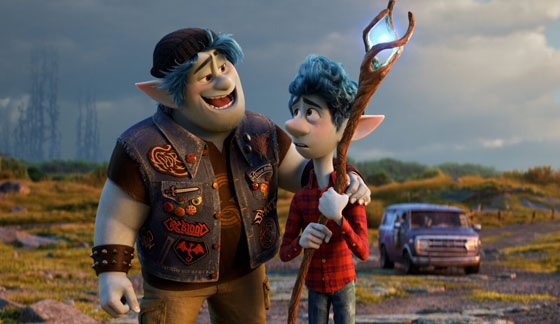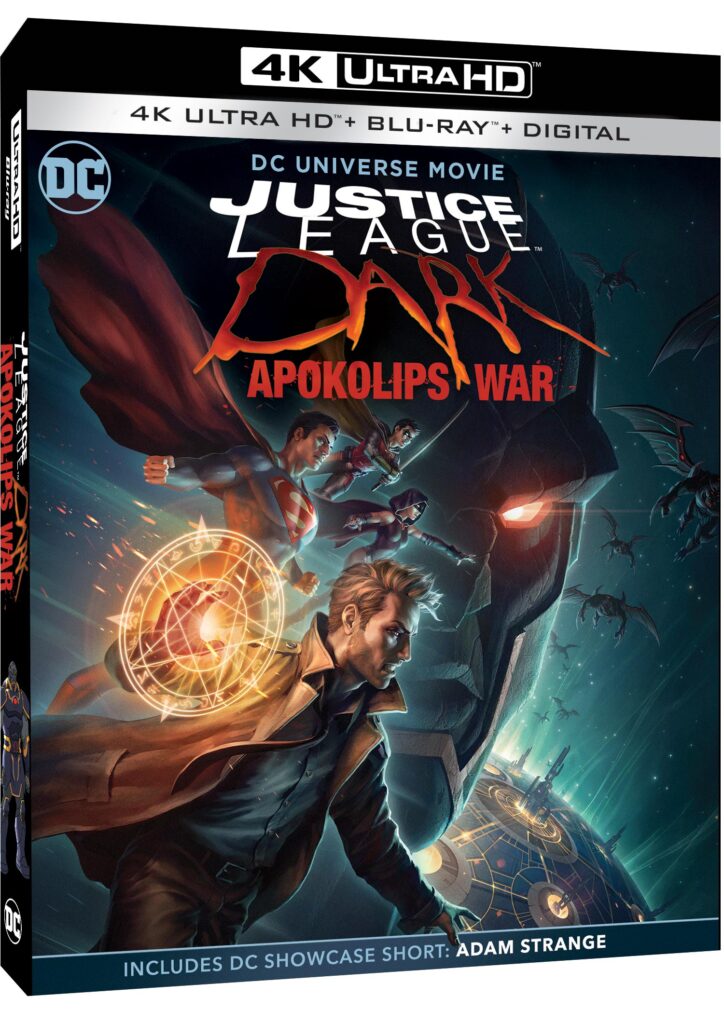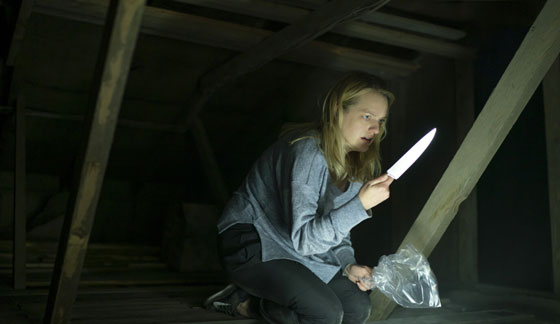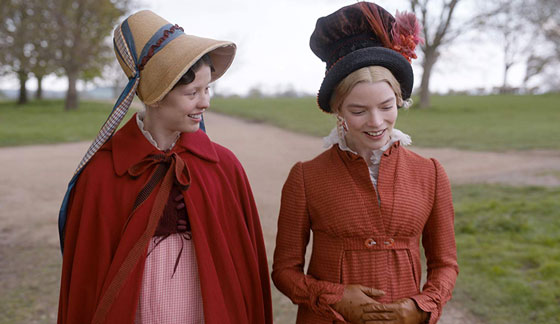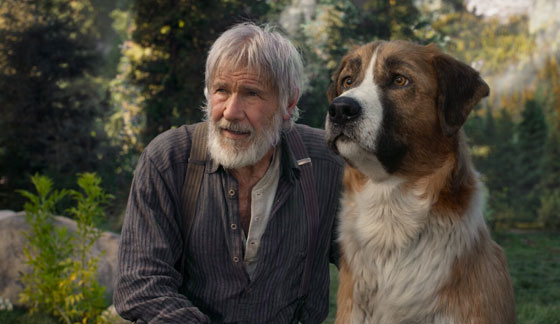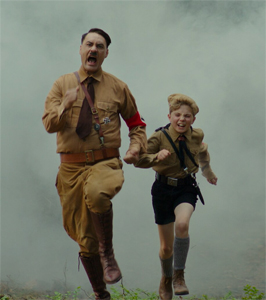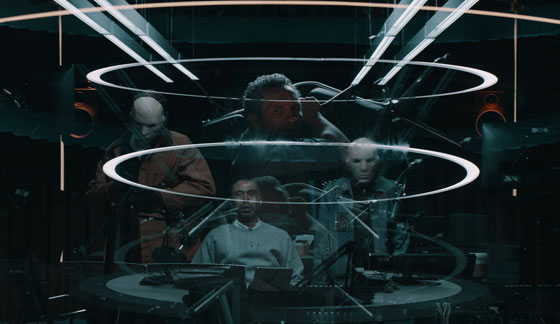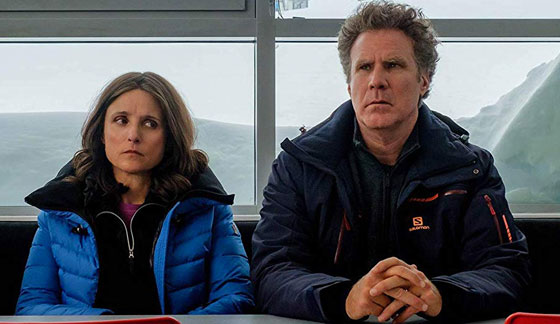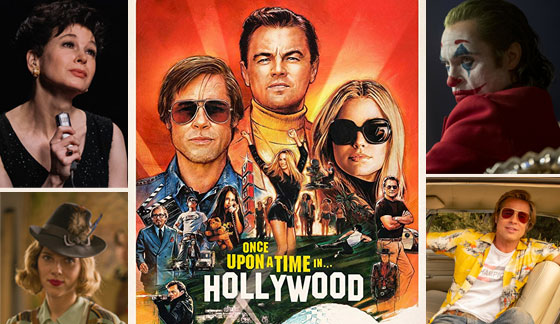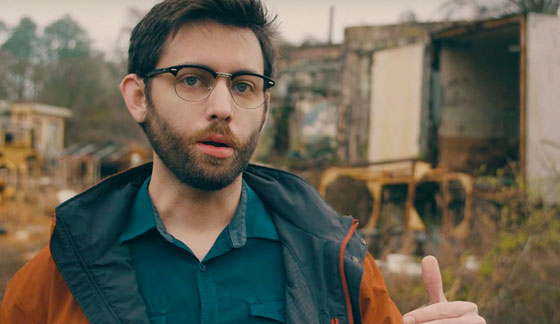COMING MAY 5, 2020 TO DIGITAL; ARRIVING MAY 19, 2020 ON 4K Ultra HD™ BLU-RAY combo pack, & BLU-RAY™ COMBO PACK
BURBANK,
CA (March 4, 2019) – The World’s Greatest Super Heroes square off
once-and-for-all against the despotic Darkseid – with the fate of all humanity
hanging in the balance – in Justice League Dark: Apokolips War, the next entry
in the popular series of DC Universe Movies. Produced by Warner Bros.
Animation and DC, the feature-length animated film will be released by Warner
Bros. Home Entertainment on Digital starting May 5, 2020, and on 4K Ultra HD Combo Pack and Blu-ray Combo Pack on May 19, 2020.
Justice League Dark: Apokolips War will be
accompanied by the all-new DC Showcase animated short, Adam Strange. The
thrilling tale, which offers insight into the space adventurer’s fascinating
backstory, features Charlie Weber (How To
Get Away with Murder) as the voice of title character.
Justice League
Dark: Apokolips War will be available on 4K Ultra HD Combo Pack (USA $39.99 SRP;
Canada $44.98 SRP) and Blu-ray Combo Pack (USA $24.98 SRP; Canada $29.98 SRP) as well as on Digital. The 4K Ultra HD Combo Pack features
an Ultra HD Blu-ray disc in 4K with HDR, a Blu-ray disc featuring the film in
hi-definition, and a digital version of the movie. The Blu-ray Combo Pack features a
Blu-ray disc with the film in hi-definition, a DVD with the film in standard
definition, and a digital version of the movie.
Culminating a six-year animated
journey that began with the release of Justice League War in 2014, Justice
League Dark: Apokolips War
finds Earth decimated after intergalactic tyrant Darkseid has devastated the
Justice League in a poorly executed war by the DC Super Heroes. Now the
remaining bastions of good – the Justice League, Teen Titans, Suicide Squad and
assorted others – must regroup, strategize and take the war to Darkseid in
order to save the planet and its surviving inhabitants. This is truly the war
to end all wars, and only the victor will live to enjoy the spoils.
Justice League Dark: Apokolips War features the largest Super Hero cast in the history of DC
Universe Movies with dozens of actors/characters spotlighted in a grand
ensemble of talent reprising their roles from this six-year story continuum. Matt
Ryan (Legends of Tomorrow, Constantine), Jerry O’Connell (Carter, Bravo’s Play by Play, Stand by Me) and Taissa Farmiga (The Nun, The Mule, American
Horror Story) anchor the cast as Constantine,
Superman and Raven, respectively – the triumvirate determined to assemble the
forces necessary to lead humanity’s final attack. Alongside that trio are the long-running
core of Justice League voices — Jason O’Mara (The Man in the High Castle, Agents of S.H.I.E.L.D.) as Batman, Rosario Dawson (Briar Patch, Daredevil, Sin City) as Wonder Woman, Shemar Moore (S.W.A.T., Criminal Minds) as Cyborg and Christopher
Gorham (Covert Affairs, Insatiable, Ugly
Betty) as The Flash – as well as JL-adjacents Rebecca Romijn (X-Men, The Librarians) and Rainn Wilson
(The Office, The Meg) as the voices
of Lois Lane and Lex Luthor, respectively.
Tony Todd (Candyman) is the voice of the film’s key villain, Darkseid. The
cast also boasts appearances by Camilla Luddington (Grey’s Anatomy)
as Zatanna, Ray Chase (Justice League Dark, Final Fantasy XV videogame) as Jason Blood/Etrigan, Roger R. Cross
(24, The Strain, Arrow) as John
Stewart & Swamp Thing, Liam McIntyre (Spartacus:
War of the Damned, The Flash) as Captain Boomerang, Hynden Walch (Teen Titans Go! Vs. Teen Titans) as
Harley Quinn, Stuart Allan (Batman vs. Robin, Batman: Bad Blood) as Robin/Damian, Sachie
Alessio (Batman: Hush) as Lady Shiva, and John DiMaggio (Futurama, Batman:
Under the Red Hood) as King Shark.
Directors
Matt Peters (LEGO DC: Batman – Family Matters) and Christina Sotta (Young Justice) helm Justice League
Dark: Apokolips War from a script by Ernie Altbacker (Batman: Hush, Justice
League Dark) and Mairghread Scott (Wonder Woman: Bloodlines), who is
also credited with creating the story. Amy McKenna (The Death of Superman) is producer, and Jim Krieg (Batman: Gotham by Gaslight) is
co-producer. Executive Producers are Sam Register and James Tucker (Reign of the Supermen, Justice League Dark).
“Justice League
Dark: Apokolips War is an epic story of supernatural
proportions. A blockbuster, battle royale of a film filled with intense action
and heartfelt emotions, serving up spotlight moments for our cast of unique
characters,” said Mary Ellen Thomas, Warner Bros. Home Entertainment Senior
Vice President, Originals, Animation and Family Marketing. “This incredible
thrill-ride takes us to the edge of the DC universe and sets the stage for an
exciting new chapter.”
Justice
League Dark: Apokolips War Special
Features
4K Ultra HD
Blu-ray Combo Pack, Blu-ray Combo Pack and Digital
- DC Showcase: Adam
Strange (Animated Short) – On an asteroid mining colony,
mysterious drifter Adam Strange is dismissed as an interplanetary derelict. But when the miners open a
fissure into the home of a horde of deadly
alien insects, his true identity is exposed. He is space adventurer Adam
Strange, whose heroic backstory is played out in flashbacks as he struggles to save the very people
who have scorned him for so long. Charlie Weber provides the voice of
Adam Strange, alongside with Roger R. Cross, Kimberly Brooks, Ray Chase and
Fred Tatasciore. Adam Strange is
produced and directed by Butch Lukic (Batman
Unlimited franchise), who also conceived the original story – which is
written by J.M. DeMatteis (Constantine:
City of Demons).
- Darkseid: New
God/Evil Classic (New Featurette) – This documentary explores the machinations of one of
fiction¹s greatest Super Villains as we learn more about what fuels Darkseid¹s
drive to becoming a galactic Atilla the Hun and the importance of Deities in
our classic and modern fiction.
- Filmmaker Audio
Commentary – Observations and
behind-the-scenes insight from Executive Producer James Tucker, Directors Matt
Peters and Christina Sotta, and Screenwriter Ernie Altbacker.
- Look Back: Justice
League Dark (Featurette) – John Constantine leads a group of misfit characters
that use magic to vanquish their opponents. This is the dark version of the
Justice League taking on the malevolent forces that go beyond our plane of
existence.
- Look Back: Batman
and Harley Quinn (Featurette) – Take a peek at the animated feature film, Batman
and Harley Quinn, featuring the creators and talented voice cast.
- From the DC Vault: Justice League
Action, “Zombie King”
- From the DC Vault: Justice League Action,
“Abate and Switch”
- From the DC Comics Vault: Teen Titans,
“Nevermore”
- A Sneak Peek at the next DC Universe Movie, Superman: Man of Tomorrow – An advanced look at the next animated film in the popular
DC Universe Movies collection.
Justice League Dark:
Apokolips War will also be
available on Movies Anywhere. Using the free Movies Anywhere app and
website, consumers can access all their eligible movies by connecting their
Movies Anywhere account with their participating digital retailer accounts.
DIGITAL DISTRIBUTION ELEMENTS
On May 5, 2020, Justice League Dark:
Apokolips War will be available to own in high
definition and standard definition from select digital retailers including
Amazon, the Apple TV app, FandangoNOW, PlayStation, Vudu, Xbox and others. On May
19, 2020, Justice League Dark: Apokolips War will be made available digitally on Video On Demand
services from cable and satellite providers, and on select gaming consoles.
ABOUT MOVIES ANYWHERE
Movies
Anywhere is a digital movie platform that enables movie fans to discover,
access, and watch their favorite digital movies in one place. Movies
Anywhere brings together a library of nearly 7,500 digital movies from Sony
Pictures, Twentieth Century Fox Film, The Walt Disney Studios (including
Disney, Pixar, Marvel Studios and Lucasfilm), Universal Pictures (including
DreamWorks and Illumination Entertainment) and Warner Bros., and will
continue to expand the consumer experience as more content providers, digital
retailers and platforms are added. By connecting participating digital
retailers that include Amazon Prime Video, the Apple TV app, FandangoNOW,
Google Play, and Vudu, movie fans can now bring together their digital
movie collections (whether purchased or redeemed) in one place and
enjoy them from the comfort of their living rooms, and across multiple devices
and platforms, including Amazon Fire devices; Android devices and Android TV;
Apple TV, iPhone, iPad and iPod touch; Chromecast; Roku® devices and
popular browsers. Movie fans can also redeem digital codes found in eligible
Blu-ray and DVD disc packages from participating studios and enjoy them through
Movies Anywhere. Movies Anywhere – your movies, together at last.
ABOUT DIGITAL
Digital movies or TV episodes allow fans to watch a
digital version of their movie or TV show anywhere, on their favorite devices.
Digital movies or TV episodes are included with the purchase of specially
marked Blu-ray discs. With digital, consumers are able to instantly stream and
download movies and TV shows to TVs, computers, tablets and smartphones through
retail services. For more information on compatible devices and services go to
wb.com/digitalmoviefaq. Consult a digital retailer for details and requirements
and for a list of digital-compatible devices.
BASICS
PRODUCT SRP
4K UHD Combo
Pack $39.99
USA, $44.98 Canada
Blu-ray Combo
Pack $24.98
USA, $29.98 Canada
Blu-ray Languages: English, Spanish, French
Blu-ray Subtitles: English, Spanish, French
4K Blu-ray Languages:
English, Spanish, French
4K Blu-ray Subtitles:
English, Spanish, French
Running Time: 90 minutes
Rated R for bloody violence,
language and some sexual references.
About Warner Bros. Home Entertainment, Inc.:
Warner
Bros. Home Entertainment (WBHE) brings together Warner Bros. Entertainment’s
home video, digital distribution and interactive entertainment businesses in
order to maximize current and next-generation distribution scenarios. An
industry leader since its inception, WBHE oversees the global distribution of
content through packaged goods (Blu-ray Disc™ and DVD) and digital media in the
form of electronic sell-through and video-on-demand via cable, satellite,
online and mobile channels, and is a significant developer and publisher for
console and online video game titles worldwide. WBHE distributes its product
through third party retail partners and licensees.
ABOUT DC
DC is one of the largest English-language publishers
of comics and graphic novels in the world and home to some of the most iconic
and recognizable characters ever created. As a creative unit of WarnerMedia, DC
is charged with strategically integrating its stories and characters across
film, television, consumer products, home entertainment, interactive games and
the DC Universe subscription streaming service. For more information
visit dccomics.com.
JUSTICE LEAGUE and
all related characters and elements are trademarks of and © DC. © 2020
Warner Bros. Entertainment Inc.
About
Warner Bros. Animation
Warner Bros. Animation (WBA) is one of the
leading producers of animation in the entertainment industry, producing and
developing projects for multiple platforms, both domestically and
internationally. WBA’s current series include Animaniacs for
Hulu, Green Eggs and Ham for Netflix, Aquaman: King of
Atlantis, Gremlins: Secrets of the Mogwai, Jellystone, Little
Ellen and Looney Tunes Cartoons for HBO Max, Harley
Quinn and Young Justice: Outsiders for DC
UNIVERSE, DC Super Hero Girls, Teen Titans Go!, ThunderCats Roar and Unikitty! for
Cartoon Network, Bunnicula, Dorothy and the Wizard of Oz, New Looney
Tunes, Scooby-Doo! and Guess Who?, The Tom and Jerry Show, Wacky Races and Yabba-Dabba
Dinosaurs! for Boomerang. WBA’s full-length theatrical film, Teen
Titans GO! to the Movies, was released in summer 2018. As home to the
iconic animated characters from the DC, Hanna-Barbera, MGM and Looney Tunes
libraries, WBA also produces highly successful animated films — including the
DC Universe Movies — for DVD, Blu-ray® and digital media. One
of the most-honored animation studios in history, WBA has won six Academy
Awards®, 35 Emmy® Awards, the George Foster Peabody Award, a BAFTA Children’s
Award, an Environmental Media Award, a Parents’ Choice Award, the HUMANITAS
Prize, two Prism Awards and 20 Annie Awards (honoring excellence in animation).


